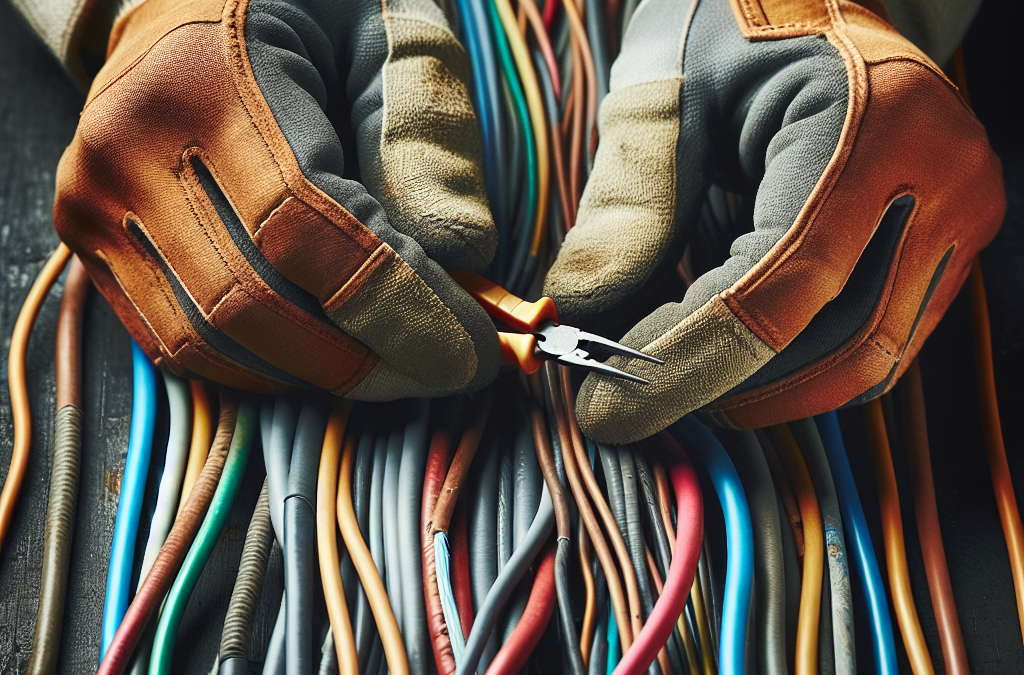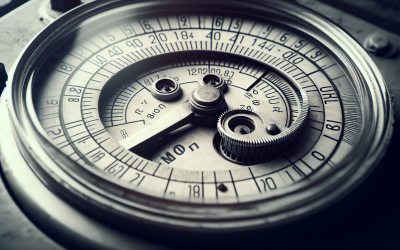So, you’ve decided to take on a new home improvement project. You’ve got all the tools, the materials, and a YouTube tutorial ready to guide you through the process. But before you dive right in, there’s one question looming over your head: Do I really need to hire an electrician for the installation? It’s a common dilemma for many DIY enthusiasts, and in this article, we’re going to explore the factors that can help you make an informed decision. Whether it’s a simple light fixture or a more complex electrical task, we’ll break it down and give you a clear understanding of when it’s time to call in the professionals.
Understanding the Importance of Hiring an Electrician
When it comes to electrical work, hiring a professional electrician is crucial for several reasons. Not only does it ensure the safety of you and your home, but it also ensures compliance with electrical codes and regulations. Electricians bring expertise and experience to the table, helping to avoid costly mistakes that could potentially lead to hazards or damage. In this article, we’ll explore the importance of hiring an electrician and discuss various aspects to consider when making this decision.
Ensuring Safety and Compliance
One of the primary reasons to hire an electrician is to ensure the safety of your home or property. Electrical systems can be complex and potentially dangerous if not handled correctly. Electricians are trained to safely install, repair, and maintain electrical components, reducing the risk of accidents, such as electrical shocks or fires. Furthermore, electricians are well-versed in local and national electrical codes and regulations, ensuring that all work is done in compliance with these standards. This compliance is essential to avoid fines, penalties, or even legal troubles down the line.
Expertise and Experience
Electricians undergo extensive training and certification to become experts in their field. Their expertise is invaluable when it comes to assessing and resolving electrical issues. Whether it’s a simple repair or a complex installation, electricians have the knowledge and experience to handle the job effectively and efficiently. They can quickly identify any potential challenges or hazards and provide appropriate solutions while maintaining the highest level of quality. Relying on their expertise saves you time, effort, and unnecessary troubleshooting.
Avoiding Costly Mistakes
Attempting to tackle electrical projects on your own can lead to costly mistakes. Without the proper training and experience, it’s easy to make errors that can result in significant damage or the need for costly repairs. Incorrect wiring or faulty connections can lead to short circuits, electrical surges, or even fires. By hiring an electrician, you minimize the risk of such mistakes and ensure that the work is done right the first time. This not only saves you money in the long run but also provides peace of mind knowing that your electrical components are properly installed and functioning efficiently.
Assessing the Complexity of the Installation Process
Before deciding whether to hire an electrician, it’s essential to assess the complexity of the installation process. Understanding the scope of the project, evaluating the electrical system requirements, and identifying potential challenges will help you make an informed decision.
Determining the Scope of the Project
The first step is to determine the scope of the electrical project. Consider the size and complexity of the task at hand. If it involves major renovations or significant electrical installations, such as adding new circuits or upgrading the electrical panel, it’s highly recommended to hire an electrician. These types of projects require specialized knowledge and expertise to ensure they are done accurately and safely.
Evaluating the Electrical System Requirements
Another factor to consider is the electrical system requirements. Do you have the necessary knowledge and understanding of electrical systems to assess your project’s needs? For instance, determining the appropriate wire sizes, circuit breakers, or grounding methods requires in-depth knowledge of electrical codes and regulations. Hiring an electrician will ensure that your project meets all the necessary requirements and operates efficiently.
Identifying Potential Challenges
Lastly, it’s crucial to identify any potential challenges that the installation process may present. Some electrical projects, such as working with old or outdated wiring, may come with unexpected complications. Electricians have the experience to tackle these challenges, ensuring that the work is completed without any issues. By hiring an electrician, you can avoid costly delays or mistakes that could potentially arise from unforeseen challenges.
Evaluating Your Own Electrical Skills and Knowledge
While some homeowners may have basic electrical skills, it’s vital to assess your own abilities before deciding to tackle electrical projects on your own. Understanding your DIY abilities, considering the risks involved, and being aware of electrical codes and regulations are key factors to consider.
Assessing your DIY Abilities
Consider your level of experience and competence when it comes to electrical work. Have you successfully completed similar projects in the past? Do you have a solid understanding of electrical concepts and techniques? Evaluating your DIY abilities will help you determine whether you have the necessary skills to handle the specific project at hand. It’s important to be honest with yourself and recognize when a task is beyond your capabilities.
Considering the Risks
Electrical work is inherently risky, especially for those without proper training and experience. One small mistake can have severe consequences, including electrical shock, fires, or even injury. Consider the potential risks involved in the project and weigh them against your own abilities. If the project presents a high risk level or involves working with live wires or complex systems, it’s best to err on the side of caution and hire an electrician.
Awareness of Electrical Codes and Regulations
Complying with electrical codes and regulations is crucial to ensure the safety and efficiency of your electrical system. Understanding these codes and regulations requires thorough knowledge and ongoing education, as they are subject to updates and changes. Electricians stay up-to-date with the latest codes and regulations, ensuring that their work meets the required standards. If you’re unfamiliar with the current electrical codes or are unsure if your project complies with them, it’s advisable to consult with an electrician.
Considerations for Hiring an Electrician
When deciding to hire an electrician, several considerations should be taken into account. These include checking their license and certification, ensuring proper insurance and liability coverage, and assessing their reputation and references.
License and Certification
Before hiring an electrician, check if they are licensed and certified. A valid license indicates that they have met the necessary training and qualification requirements set by the governing authority. It provides assurance that they have the knowledge and skills to perform the required electrical work. Additionally, certifications from reputable organizations, such as the National Electrical Contractors Association (NECA) or the Electrical Contractors’ Association of America (ECAA), can further validate their expertise and professionalism.
Insurance and Liability
Electrical work involves certain risks, both to the electrician and to your property. To protect yourself and your home, ensure that the electrician carries proper insurance coverage. This includes general liability insurance and worker’s compensation insurance. General liability insurance safeguards against any damage or injuries that may occur during the project, while worker’s compensation insurance protects you from being held liable for any injuries sustained by the electrician while working on your property.
Reputation and References
Researching the electrician’s reputation and checking references can provide valuable insights into their workmanship and professionalism. Look for online reviews, testimonials, or ask for references from previous clients. Contacting these references will give you firsthand information about their experience with the electrician, including their level of satisfaction and whether they would recommend their services. A reputable electrician should have a track record of happy customers and positive reviews.
Comparing the Costs: DIY vs Electrician
One factor that often comes into consideration when deciding whether to hire an electrician is the cost. While DIY projects may seem like a cost-saving option, it’s essential to consider various expenses associated with electrical work.
Equipment and Tools
Electrical projects require specialized equipment and tools that may not be readily available to homeowners. Purchasing or renting these tools can add significant costs to your DIY project. On the other hand, electricians come equipped with the necessary tools and equipment, saving you the expense of purchasing or renting them.
Permits and Inspections
Most electrical projects require obtaining permits and undergoing inspections. These permit fees can vary depending on the location and the scope of the project. Electricians are familiar with the permitting process and can handle the paperwork on your behalf. They also ensure that the electrical work passes inspection, preventing any delays or additional costs associated with non-compliance.
Product Warranties
When hiring an electrician, they typically offer warranties on their workmanship and the products they use. This warranty provides peace of mind, knowing that any issues or malfunctions will be addressed at no additional cost. DIY projects, on the other hand, do not usually come with such warranties. If something goes wrong with the installation or if a product fails, you may be responsible for the cost of repairs or replacements.
Common Electrical Projects That Require an Electrician
While some electrical projects can be safely completed by homeowners, certain tasks are best left to the expertise of an electrician. These include electrical panel upgrades, whole house rewiring, and the installation of electrical appliances.
Electrical Panel Upgrades
Electrical panel upgrades require replacing or expanding the existing electrical panel to accommodate increased electrical usage. This task involves working with high voltage, extensive wiring, and a thorough understanding of electrical distribution. It is a complex project that should only be handled by a licensed electrician to ensure the safety and efficiency of the electrical system.
Whole House Rewiring
If you’re living in an older home, it’s possible that your electrical wiring may be outdated or deteriorating. Whole house rewiring involves replacing the entire electrical wiring system, including outlets, switches, and fixtures. This is a labor-intensive project that requires extensive knowledge and experience to ensure compatibility, safety, and compliance. Hiring an electrician is crucial to successfully complete this task without risking damage to your property or compromising your safety.
Installation of Electrical Appliances
Installing electrical appliances, such as ceiling fans, light fixtures, or major kitchen appliances, requires electrical expertise. These installations often involve working with existing electrical circuits, connecting wiring, and ensuring proper grounding. Improper installation can lead to malfunctions, electrical hazards, or damage to the appliance itself. Electricians are trained to handle these installations safely and accurately, ensuring that the appliance functions correctly and adheres to all electrical codes and regulations.
Ensuring Electrical Safety
Safety should be the top priority when it comes to any electrical work, which is why hiring an electrician is highly recommended. Electricians understand the potential hazards and take necessary precautions to minimize the risk of electrical accidents or injuries.
Minimizing the Risk of Electrical Hazards
Electricians have the knowledge and training to identify and eliminate potential electrical hazards. Whether it’s faulty wiring, overloaded circuits, or damaged electrical components, they can identify and rectify these issues before they become a safety concern. By hiring an electrician, you minimize the risk of electric shocks, fires, or other hazardous situations that may arise from improper electrical installations.
Proper Grounding and Wiring
Correct grounding of electrical systems is crucial for safety and efficiency. Electricians ensure that all electrical circuits are properly grounded, reducing the risk of electrocution and protecting sensitive electronic devices from power surges. They also guarantee proper wiring connections, preventing loose connections that could lead to overheating or fires. These measures ensure that your electrical system operates smoothly and safely.
Adhering to Local Building Codes
Electrical codes and regulations exist to protect homeowners and ensure the integrity of electrical installations. Electricians are well-versed in these codes and regulations and know how to apply them correctly to every project. By adhering to these local building codes, electricians ensure that your electrical work complies with safety standards and effectively minimizes potential hazards.
Potential Consequences of DIY Electrical Work
Attempting DIY electrical work can have serious consequences that extend beyond immediate safety risks. It’s important to understand the potential hazards and drawbacks that come with taking on electrical projects without professional assistance.
Electrocution and Fire Hazards
Working with electricity without proper training and knowledge significantly increases the risk of electrocution and fires. One wrong move or faulty connection can lead to severe injuries, electrical shocks, or even fatal accidents. Additionally, poor wiring or incorrect installations can create fire hazards, putting your property and the lives of those within it at risk. The potential dangers associated with DIY electrical work should not be underestimated.
Inadequate Wiring and Inefficiency
Electrical systems require precise wiring and connections to function efficiently. DIY electrical work may result in inadequate wiring, leading to voltage drops, power inconsistencies, or inefficient operation of electrical devices. Inadequate wiring can cause appliances to underperform, malfunction, or even damage over time. It’s important to ensure that your electrical system is professionally installed to avoid these inefficiencies and maintain the longevity of your electrical components.
Voiding Insurance and Warranty
Most insurance policies and product warranties have clauses that void coverage if electrical work is not completed by a licensed professional. If an electrical issue occurs due to a DIY installation, and it leads to damage or loss, your insurance may refuse to cover the cost of repairs or replacements. Likewise, product warranties for electrical appliances often require professional installation for the warranty to remain valid. By attempting DIY electrical work, you risk voiding these important forms of protection.
Making an Informed Decision
Deciding whether to hire an electrician or tackle an electrical project yourself requires careful consideration. Consulting with an electrician, weighing the pros and cons, and taking into account your available time and resources are all essential aspects of making an informed decision.
Consulting with an Electrician
One of the best ways to make an informed decision is by consulting with an electrician. They can assess your specific project, provide expert advice, and offer valuable insights into the feasibility and complexity of the task. Electricians can answer any questions you may have and address any concerns, helping you make a well-informed choice.
Weighing the Pros and Cons
Consider the advantages and disadvantages of hiring an electrician versus taking on the project yourself. Assess factors such as your skill level, the potential risks involved, the complexity of the project, and the overall cost. By carefully weighing the pros and cons, you can determine which option is the most suitable for your situation.
Considering Time and Resources
Electrical projects can be time-consuming and require a significant investment of resources. Consider the time you have available to dedicate to the project and whether the required skills and knowledge are within your reach. Additionally, assess the availability of tools, permits, and materials needed for the project. Sometimes, hiring an electrician may prove more cost-effective when considering the time and resources required for a successful DIY project.
Conclusion
When it comes to electrical installations, repairs, or upgrades, hiring an electrician is crucial for safety, compliance, and quality. Electricians bring expertise and experience to ensure that your electrical projects are completed accurately and efficiently. By assessing the complexity of the task, evaluating your skills, and considering the potential risks, you can make an informed decision. Considerations such as licensing, insurance, reputation, and costs should guide your decision-making process. Ultimately, the peace of mind that comes with a professional electrician’s workmanship and warranties far outweigh the risks and uncertainties of a DIY project.









